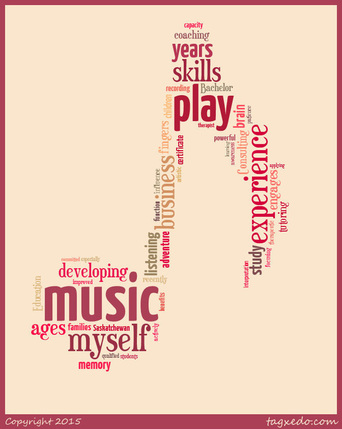
Music is a very powerful tool that can influence our general well-being. Listening to music makes us smarter and helps our brain function at a higher capacity. If you play music those benefits are even greater! Playing the piano engages seven areas of your brain. The pianist's eyes, ears, fingers, hands and feet are actively engaged while focusing on rhythm, artistic interpretation, and spatial awareness of what each finger is doing and what keys need to be played on the piano. Music students develop better listening skills, long term memory, patience, and study skills than those who don't play music. My favorite lesson moments are when I watch a child's ah ha moment and their fingers know when and where to go with a challenging song.
Why start music at a young age?
Research shows that listening to and playing music strengthens a child’s development.
Social/Emotional: Whether your child is in group or private lessons they will develop their social and emotional skills as they work with other children and adults to learn and create music.
Verbal: Singing is proven to strengthen lungs as well as increase vocabulary which will help your child better express themselves.
Aural: Music revolves around listening, your child will learn to hear unique sounds and repeat back what they heard.
Physical: Playing instruments works on developing fine and gross motor skills
Visual: Learning to read music is just one part of music, there is also mental visualization that happens as your child learns to create pictures and stories to go along with the music.
Logical: Music has a mathematical foundation, though few realize they are doing it. Its more than basic counting and fractions, its also uses reasoning to break music down to find repetitive themes.
Cognitive: In addition to your brain being fully engaged while playing music, it is also the greatest source for learning about culture and history.
Research shows that listening to and playing music strengthens a child’s development.
Social/Emotional: Whether your child is in group or private lessons they will develop their social and emotional skills as they work with other children and adults to learn and create music.
Verbal: Singing is proven to strengthen lungs as well as increase vocabulary which will help your child better express themselves.
Aural: Music revolves around listening, your child will learn to hear unique sounds and repeat back what they heard.
Physical: Playing instruments works on developing fine and gross motor skills
Visual: Learning to read music is just one part of music, there is also mental visualization that happens as your child learns to create pictures and stories to go along with the music.
Logical: Music has a mathematical foundation, though few realize they are doing it. Its more than basic counting and fractions, its also uses reasoning to break music down to find repetitive themes.
Cognitive: In addition to your brain being fully engaged while playing music, it is also the greatest source for learning about culture and history.